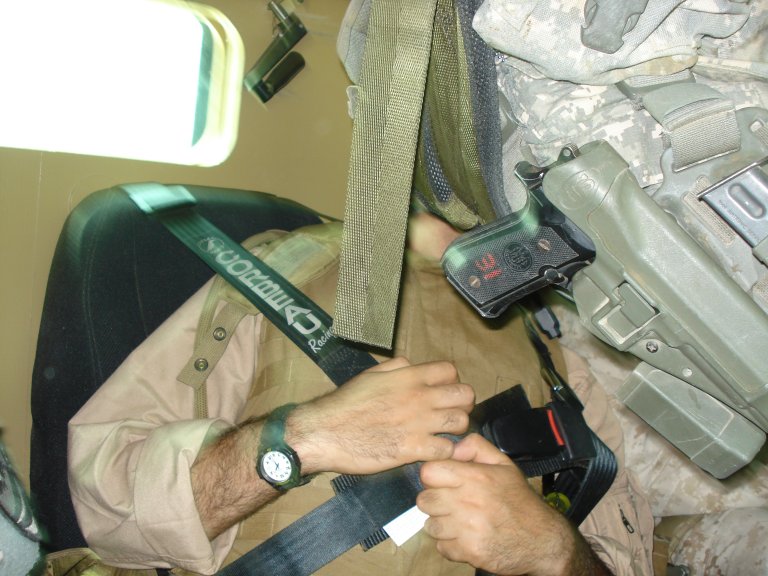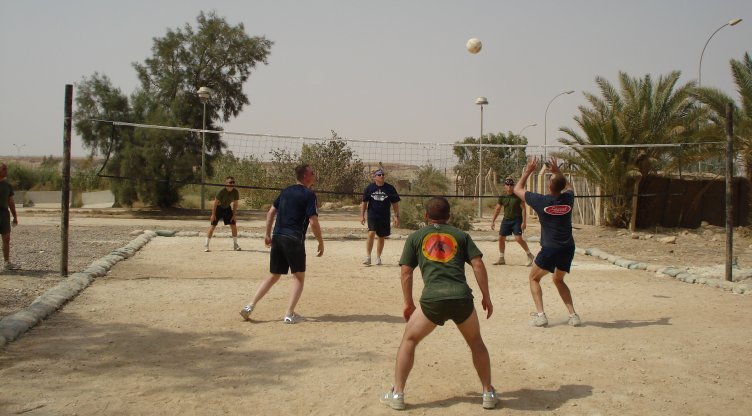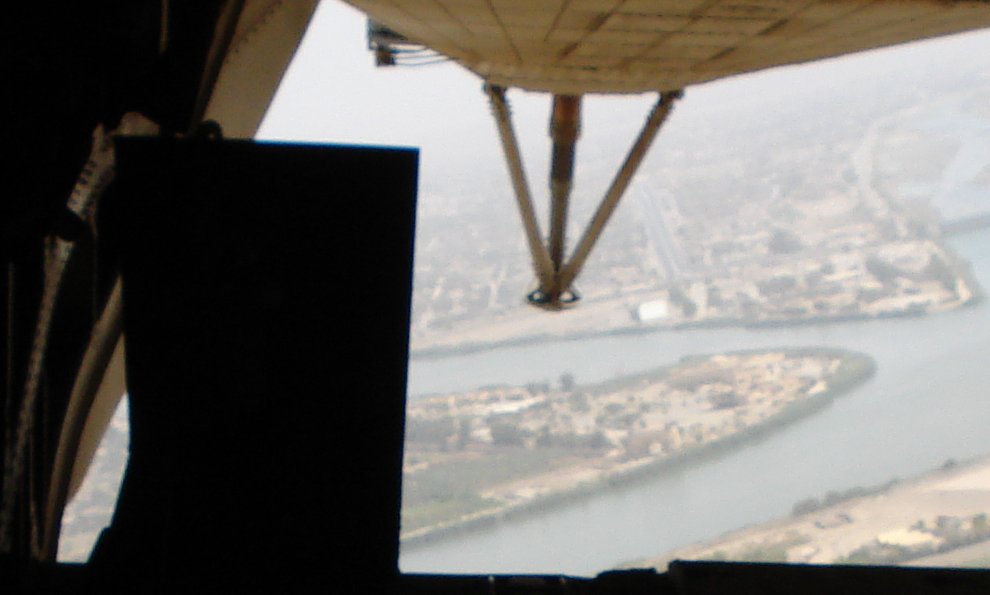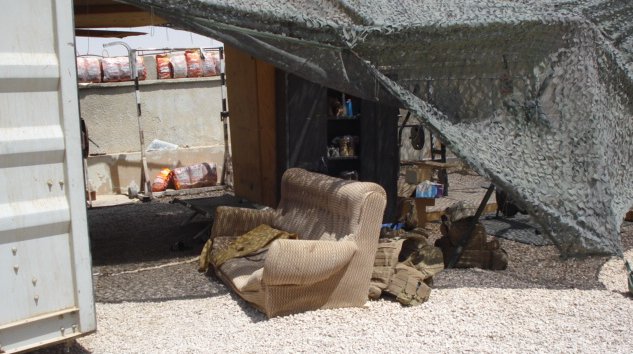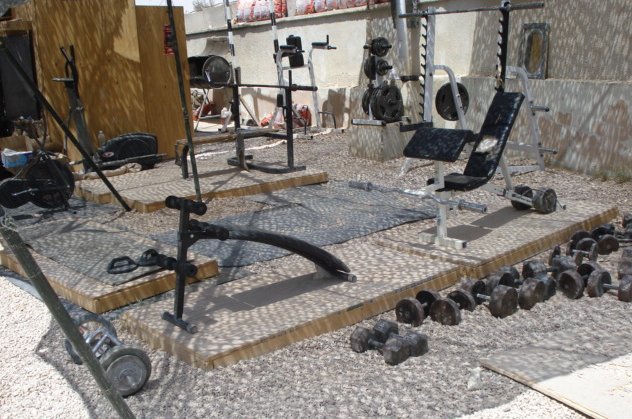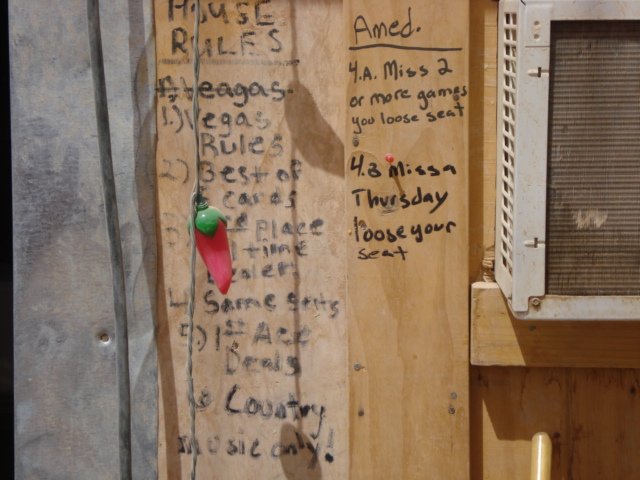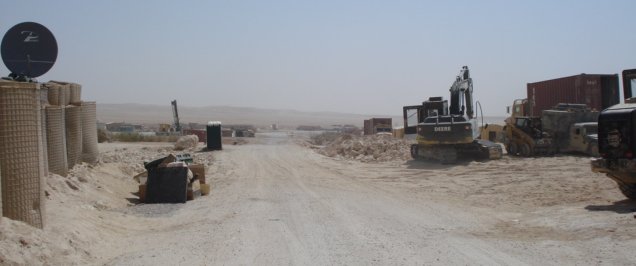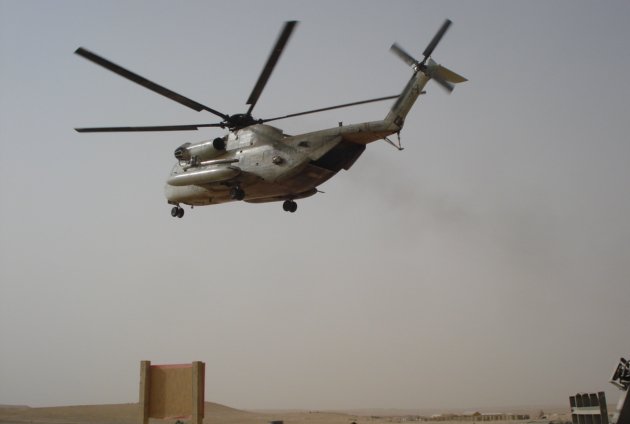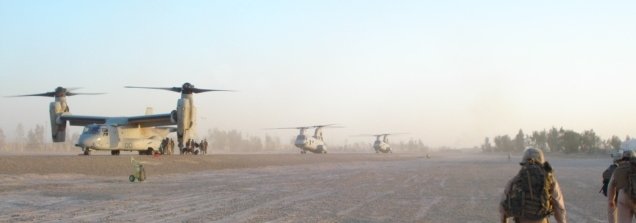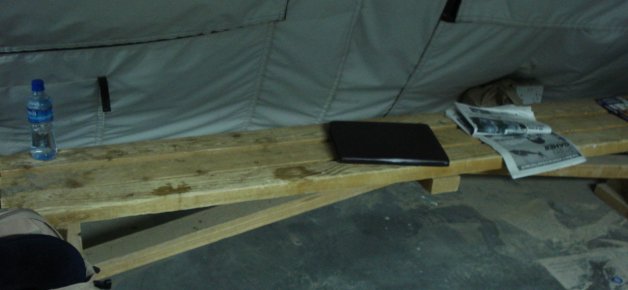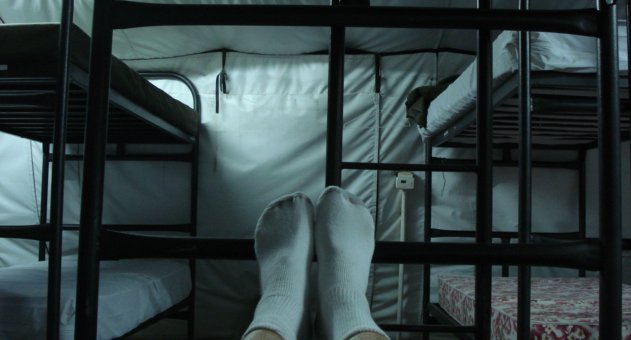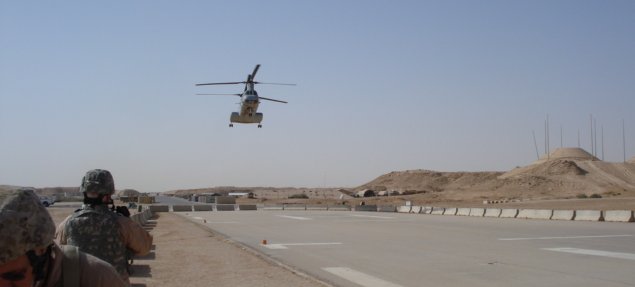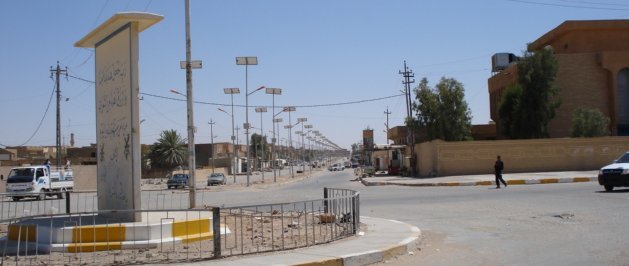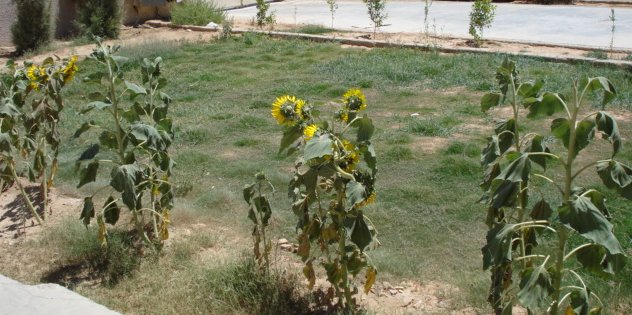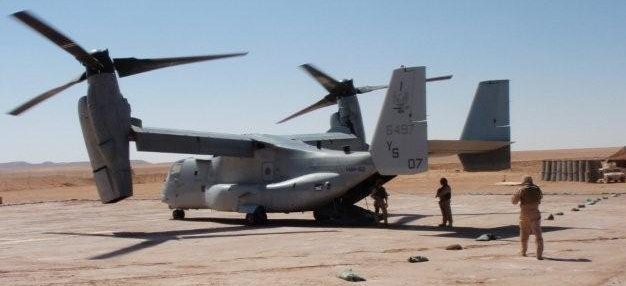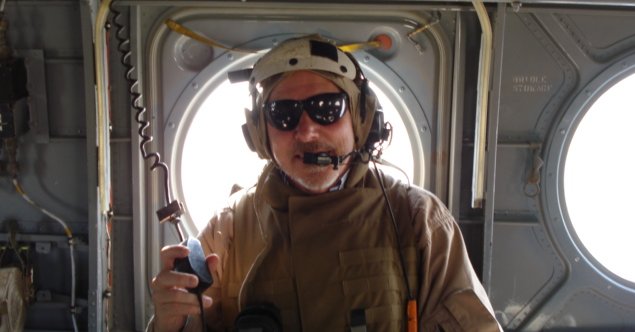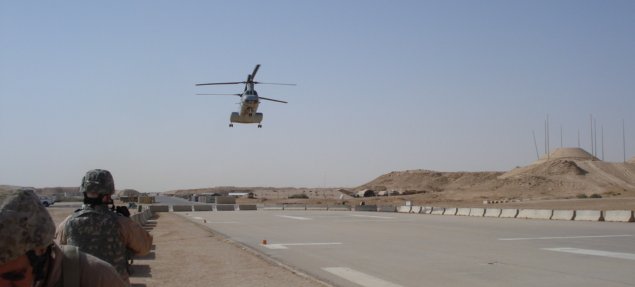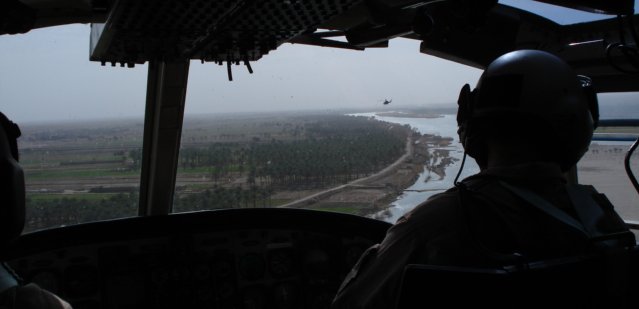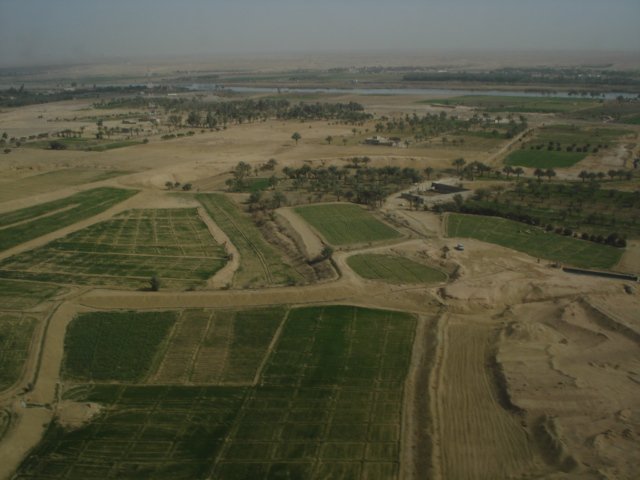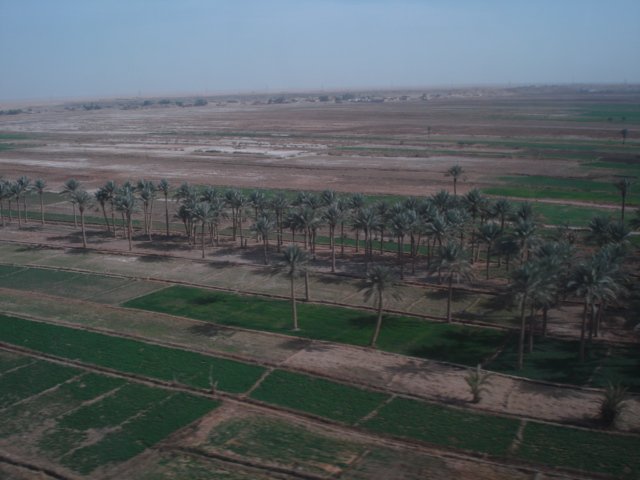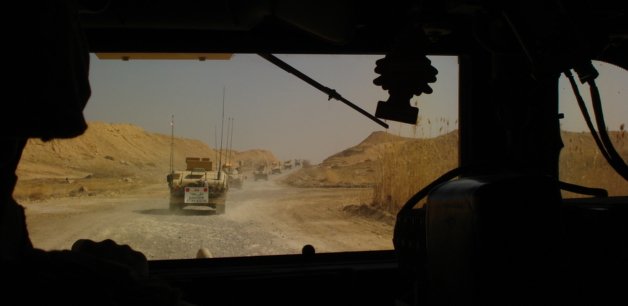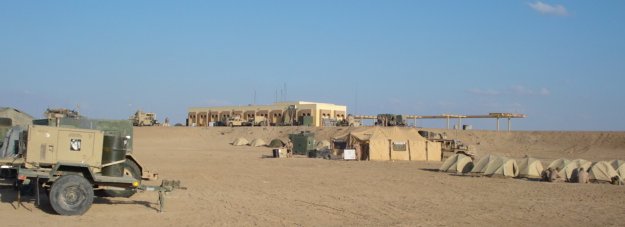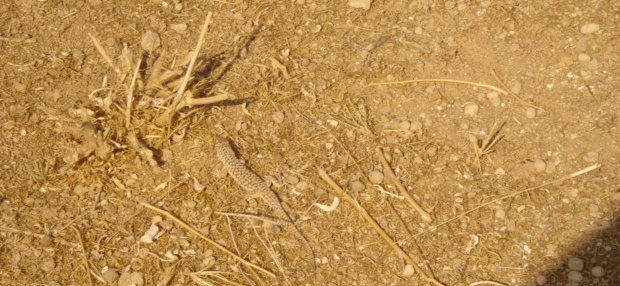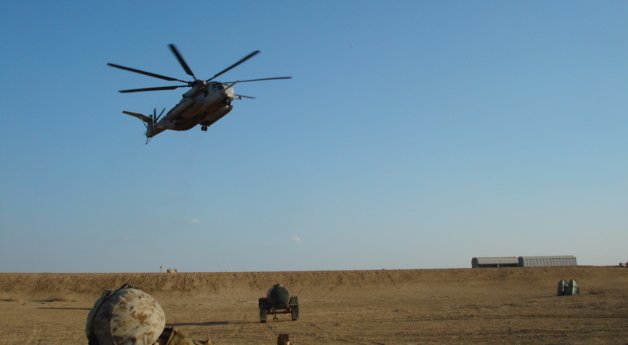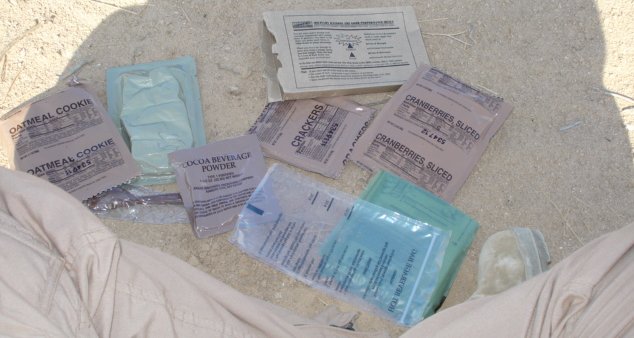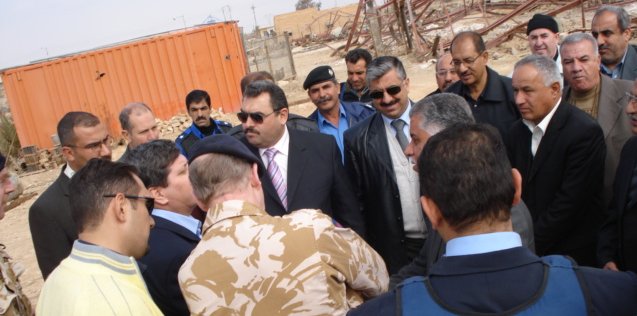Below is my last Marine Air helo. It is in that cloud of dust.
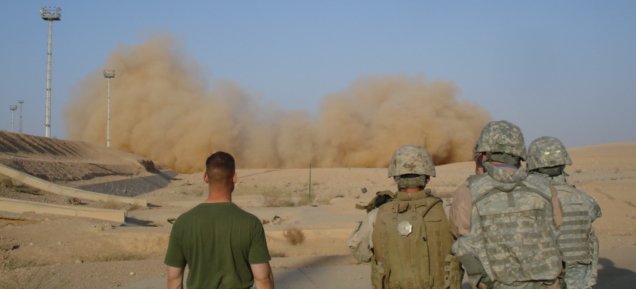
I am not sure what to do with this blog. I enjoy writing and will probably keep on posting, but it will not be as interesting most of the time. I cannot continue to use the title “Matel in Iraq.” I was thinking of putting a period to the sentence and calling it “Victory in Iraq,” since that is what I believe America has achieved here. It would be a stand alone, historical webpage. One of my colleagues thought that would be a bad idea because it was too strident. He may be right. We have achieved success here, but victory has that WWII feel of having it settled and the war on terror is not settled. Your suggestions are welcomed.
FYI – I will have left Al Asad by the time you read this and will leave Iraq entirely in a few days. I have some free time. I look forward to seeing my family again and just being in Virginia. I want to get up to Milwaukee for a while and Mariza and I will attend the national tree farmer convention in Portland, Oregon. I also need to look at my own trees. We are applying biosolids to 132 acres. That should make my little trees shoot up next year and improve the soil stability.
I start my new job as director of policy issues at International Information Programs in November, after taking the senior executive training course at FSI. I think that will be fun. I have to get my bike fixed so I can do that commute on the bike trail.
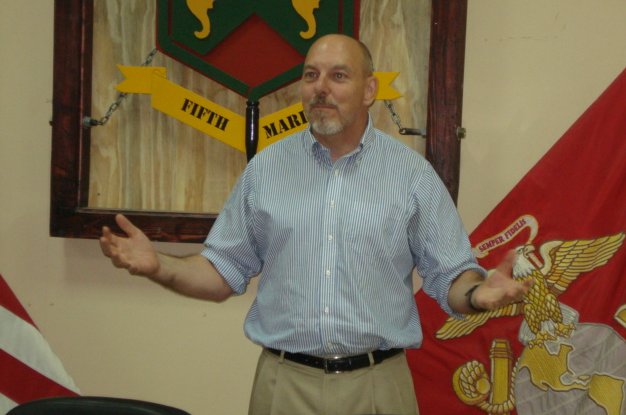
has been fun talking to you all for the past year. This is not my last post, or even my last post from Iraq, but it is the end of the era. The posts will just be more prosaic with more about forestry and living in the USA. Of course, I still have to do my big looking back pontification.
Last year I thought I would jump for joy when I got out of Iraq. While I am still very happy to look forward to the good things I mention above, I have come to enjoy my work here and I will miss my colleagues and friends I have made here. I have enjoyed the experience. Whodathunkit?





